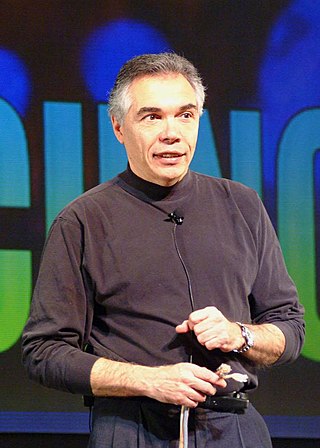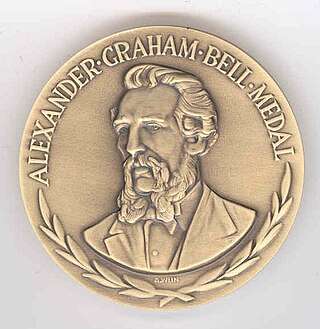Related Research Articles

Sir Sandford Fleming was a Scottish Canadian engineer and inventor. Born and raised in Scotland, he immigrated to colonial Canada at the age of 18. He promoted worldwide standard time zones, a prime meridian, and use of the 24-hour clock as key elements to communicating the accurate time, all of which influenced the creation of Coordinated Universal Time. He designed Canada's first postage stamp, produced a great deal of work in the fields of land surveying and map making, engineered much of the Intercolonial Railway and the first several hundred kilometers of the Canadian Pacific Railway, and was a founding member of the Royal Society of Canada and founder of the Canadian Institute.
The Royal Canadian Institute for Science (RCIScience), known also as the Royal Canadian Institute, is a Canadian nonprofit organization dedicated to connecting the public with Canadian science.

The Royal Society of Canada, also known as the Academies of Arts, Humanities, and Sciences of Canada, is the senior national, bilingual council of distinguished Canadian scholars, humanists, scientists, and artists. The primary objective of the RSC is to promote learning and research in the arts, the humanities, and the sciences. The RSC is Canada's national academy. It promotes Canadian research and scholarly accomplishment in both official languages, recognizes academic and artistic excellence, and advises governments, non-governmental organizations, and Canadians on matters of public interest.

Joseph A. Schwarcz is an author and a sessional instructor at McGill University. He is the director of McGill's Office for Science and Society.
Fleming College, also known as Sir Sandford Fleming College, is an Ontario College of Applied Arts and Technology located in Peterborough, Ontario, Canada.
Terence Dickinson was a Canadian amateur astronomer and astrophotographer who lived near Yarker, Ontario, Canada. He was the author of 14 astronomy books for both adults and children. He was the founder and former editor of SkyNews magazine. Dickinson had been an astronomy commentator for Discovery Channel Canada and taught at St. Lawrence College. He made appearances at such places as the Ontario Science Centre. In 1994, the International Astronomical Union committee on Minor Planet Nomenclature named asteroid 5272 Dickinson in honour of his "ability to explain the universe in everyday language".
Fernand Seguin, was a Canadian biochemist, professor and host of science programs on radio and television.

The Royal Photographic Society of Great Britain, commonly known as the Royal Photographic Society (RPS), is one of the world's oldest photographic societies. It was founded in London, England, in 1853 as the Photographic Society of London with the objective of promoting the art and science of photography, and in 1853 received royal patronage from Queen Victoria and Prince Albert.
The Dennis Gabor Medal and Prize is a prize awarded biannually by the Institute of Physics for distinguished contributions to the application of physics in an industrial, commercial or business context. The medal is made of silver and is accompanied by a prize and a certificate.

Sir Paul Terence Callaghan was a New Zealand physicist who, as the founding director of the MacDiarmid Institute for Advanced Materials and Nanotechnology at Victoria University of Wellington, held the position of Alan MacDiarmid Professor of Physical Sciences and was President of the International Society of Magnetic Resonance.

The IEEE Alexander Graham Bell Medal is an award honoring "exceptional contributions to communications and networking sciences and engineering" in the field of telecommunications. The medal is one of the highest honors awarded by the Institute of Electrical and Electronics Engineers (IEEE) for achievements in telecommunication sciences and engineering.
Dan Falk is a Canadian science journalist, broadcaster, and author. He has written for The Globe and Mail, the Toronto Star, The Walrus, Cottage Life, SkyNews, Astronomy and New Scientist, and has contributed to the CBC radio programs Ideas, Quirks and Quarks, Tapestry and Spark.
Paul Bruce Corkum is a Canadian physicist specializing in attosecond physics and laser science. He holds a joint University of Ottawa–NRC chair in attosecond photonics. He also holds academic positions at Texas A&M University and the University of New Mexico. Corkum is both a theorist and an experimentalist. He is known for developing the theory of attosecond physics.
David William Schindler,, was an American/Canadian limnologist. He held the Killam Memorial Chair and was Professor of Ecology in the Department of Biological Sciences at the University of Alberta in Edmonton, Alberta. He was notable for "innovative large-scale experiments" on whole lakes at the Experimental Lakes Area (ELA) which proved that "phosphorus controls the eutrophication in temperate lakes leading to the banning of phosphates in detergents. He was also known for his research on acid rain. In 1989, Schindler moved from the ELA to continue his research at the University of Alberta in Edmonton, with studies into fresh water shortages and the effects of climate disruption on Canada's alpine and northern boreal ecosystems. Schindler's research had earned him numerous national and international awards, including the Gerhard Herzberg Gold Medal, the First Stockholm Water Prize (1991) the Volvo Environment Prize (1998), and the Tyler Prize for Environmental Achievement (2006).
Richard Olding Hynes is a British biologist, a Howard Hughes Medical Institute Investigator, and the Daniel K. Ludwig Professor for Cancer Research at the Koch Institute for Integrative Cancer Research, Massachusetts Institute of Technology (MIT). His research focuses on cell adhesion and the interactions between cells and the extracellular matrix, with a particular interest in understanding molecular mechanisms of cancer metastasis. He is well known as a co-discoverer of fibronectin molecules, a discovery that has been listed by Thomson Scientific ScienceWatch as a Nobel Prize candidate.

Penelope Dawn (Penny) Park was a Canadian science journalist.

Dawn R. Bazely is a full professor in biology in the Faculty of Science, and the former Director of the Institute for Research Innovation in Sustainability, at York University in Canada. In 2015 she was awarded the title of University Professor for services to research, teaching, and the institution. Bazely has been a field biologist for forty years and her research specializes in plant-animal interactions in ecology. She has also been recognized for her science communication.

André Pierre Picard is a Canadian journalist and author specializing in health care issues. He works as a reporter and a columnist for the national newspaper The Globe and Mail. As of 2020, he runs the news organization's office in Montreal. He currently lives in Vancouver.
Lydia Dotto (1949–2022) was a Canadian science journalist and author, a wildlife photographer, and an educator on science communication.
References
- 1 2 "The Sandford Fleming Medal & Citation". Royal Canadian Institute for Science. Retrieved 9 January 2024.
- ↑ "Dr. Dawn Bazely Winner of the 2022 Fleming Medal for Excellence in Science Communication" . Retrieved 15 February 2023.
- ↑ "RCIScience recognizes the unsung heroes of science communication". Royal Canadian Institute for Science. 30 October 2023. Retrieved 10 February 2024.